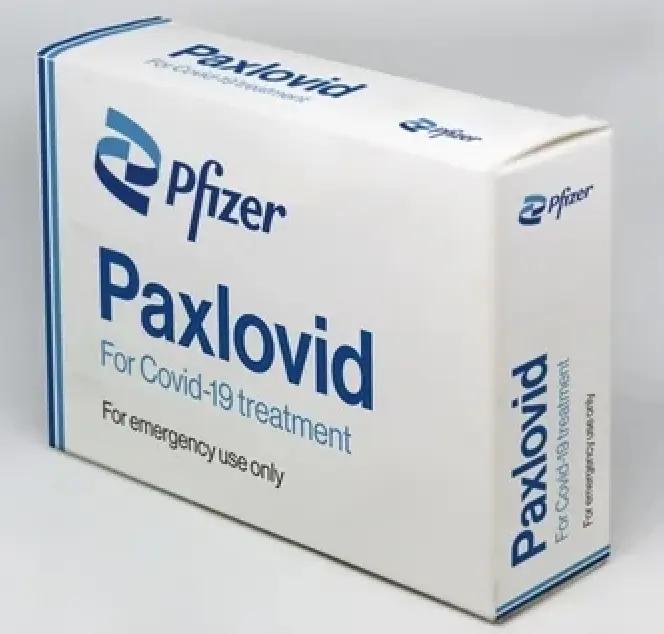
In a large study published today, nirmatrelvir-ritonavir (Paxlovid) use was not found to reduce hospitalizations and mortality in adults 70 years of age and older who were vaccinated.1
“There were no significant differences just below vs just above age 70 years (per 100000 patients per month) in COVID-19–related hospitalizations (39.5 vs 42.9; absolute difference, 3.4; 95% CI −1.3 to 8.1; P = .15), all-cause hospitalizations (979.6 vs 988.4; absolute difference, 8.9; 95%CI −35.0 to 52.7; P = .69), or all-cause mortality (109.6 vs 115.7; absolute difference, 6.1; 95%CI, −2.7 to 14.9; P = .17),” the investigators wrote.1
And these results were realized, despite the more than doubled rate of Paxlovid prescriptions.
“Our study effectively rules out the notion that Paxlovid causes large reductions in COVID-19 hospitalization in vaccinated older adults,” the study’s lead author John Mafi, MD, MPH, said in a statement. “While we cannot rule out a small reduction in COVID-19 hospitalization, our results indicate that at best, Paxlovid’s potential effect on COVID-19 hospitalization among vaccinated older adults is four times weaker than the effect originally reported in Pfizer’s 2022 clinical trial.”2
“This study’s 95% CI suggests that at best, nirmatrelvir-ritonavir could reduce COVID-19–related hospitalizations by 1.3 percentage points, which is 4 times smaller than the absolute risk reduction of 5.5 percentage points reported in the original nirmatrelvir-ritonavir trial among unvaccinated middle-aged adults,” the investigators wrote.1
The investigators examined aggregate summary-level data from multiple ICES-linked Ontario health databases and they analyzed patients aged 65 to 74 years between April 1, 2022, and November 30, 2022.1
One of the novel aspects of this study, is the age of individuals examined. To determine the association between Paxlovid and COVID-19-related hospitalizations, all-cause hospitalizations and all-cause mortality outcomes, the researchers exploited a natural experiment in Ontario, Canada. In 2022, Ontario implemented an age-restrictive policy on access to Paxlovid—reserving it for symptomatic, COVID-19-positive adults aged 70 years and older, unless they were immunocompromised or had other risk factors. The researchers used data from several Ontario health databases linked by ICES, the major steward of Ontario health data.2
The investigators compared outcomes of patients who were just below vs just above 70-years-old who were plausibly similar except for their exposure to Paxlovid. By restricting Paxlovid access by age, the policy created a novel, age experiment that the study analyzed to evaluate the antiviral’s impact on key health outcomes, effectively avoiding the common observational research pitfall known as unobserved confounding.2
What You Need to Know
The study found no significant reduction in COVID-19–related hospitalizations, all-cause hospitalizations, or mortality among vaccinated older adults who received Paxlovid.
Researchers utilized Ontario’s age-restrictive policy on Paxlovid to create a natural experiment, comparing health outcomes of individuals just below and just above age 70.
The study was conducted during a specific time frame (April–November 2022) when certain COVID-19 variants were dominant, possibly affecting outcomes. Additionally, the lack of detailed patient-level data (e.g., symptom severity, exact vaccination timing, and medication adherence) may have influenced the findings.
“Unobserved confounding is a problem because the decision to use Paxlovid is not random, and the factors that influence its use are able to influence the risk of hospitalization or mortality,” study co-author Sitaram Vangala, biostatistician in the Department of Medicine Statistics Core, UCLA, said in a statement.2
“Because access to Paxlovid in this study was in effect randomized for those close to the age 70 cutoff, our results are unlikely to reflect unobserved confounding,” Vangala said. “This may explain why our results align with the recent negative 2024 clinical trial among vaccinated middle-aged adults, but not with observational studies showing that Paxlovid is associated with large reductions in hospitalization and mortality in vaccinated older adults.”2
The investigators pointed out they were limited by a lack of individual patient-level data regarding symptoms, timing of previous COVID-19 vaccinations, receipt of Paxlovid, and medication adherence.2






